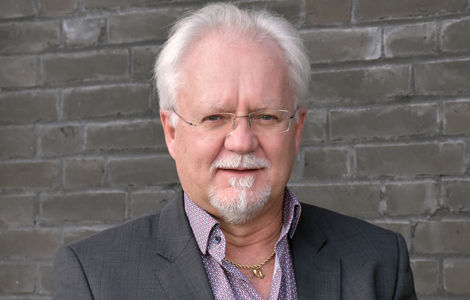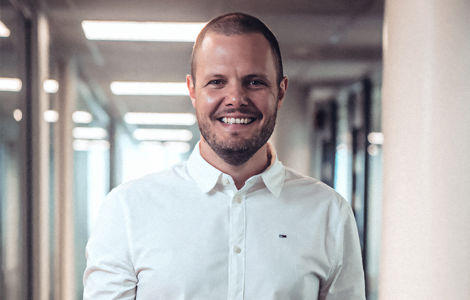"Now we are running an IT project!" is a phrase that can send chills down the spine of many employees or managers who have been on the job-market for a decade or two. Today, however, the vast majority of companies and private individuals are so digitized that classic IT projects are rarely a challenge. An ERP project, on the other hand, is considered by many to be the big brother of all IT projects.
But does it really have to be this way? Is there truth in the common perception that ERP projects are long-term, expensive, resource-intensive, complex and require a complete reshuffle of the entire organization? In this article you can read why we think the answer is a resounding "no" on all points.
"It's so complicated!"
Yes, but no. We certainly understand the concerns around system implementation, data integration, business processes, user training, etc., but these concerns tend to be based on the premise that ERP systems are square and inherently inflexible. That the company must adapt to the system.
Instead, we strike a blow for ERP projects on behalf of the industry, where the system adapts to the company. Most companies in our core industries have several (often international) departments that include everything from purchasing and production to inventory management and sales. Since each of these departments has unique work processes and specific information flow requirements, shouldn't the ERP system take that into account by default?
It actually can. We believe that the days of extensive adaptations, long implementation cycles and heavy consumption of the company's key resources are over. At Cepheo, we have adapted ERP systems for companies in manufacturing, energy, engineering and project-oriented industries for 25 years. Against this background, we have developed a best practice implementation, which we call Cepheo Axelerator, and which is already tailored to the needs of the industries. Only the implementation itself remains. And it is actually quite straightforward to implement.
"It's going to take time"
Here you just have to be steely-eyed and ready for a long-term project, you might think. One year? Three? The time aspect is a classic concern that often makes companies hesitate to start an ERP project at all. And the concern is not unfounded: traditionally, the implementation of ERP systems has taken a very long time, which often affects daily operations and productivity. Fortunately, that is no longer the case.
A tailored ERP solution significantly reduces time consumption. In the crossroads between "let's find your size" and "one size fits all", we have developed a "this size fits you" solution. It fits seamlessly into the vast majority of existing business processes, which means less time for adaptation and integration. In this way, the company can quickly start user training and therefore also achieve results faster.
In large ERP projects, we often talk about the time-to-value (TTV) – i.e., how long it takes before you gain utility or value. For who have already implemented Cepheo Axelerator, the process has taken as little as 3-4 months. But although time is money, and therefore a shorter project is generally more cost-effective than a long project, it does not mean absolutely everything.
"Uh, it's going to be expensive."
Although time is money, and time can be significantly reduced, there are more costs associated with an ERP project than just the number of consulting hours. Many companies fear that the implementation will lead to large investments in software and hardware and, not least, that it will affect production.
An ERP solution that is predefined for your industry can, therefore, be a cost-effective approach. By building on existing infrastructure and using software that is already industry-specific, costs can be significantly reduced. Trying to tailor a standardized solution is often both expensive and a bad idea. But by changing the premise of what "standardized" is, the frame of reference changes drastically.
A successful ERP implementation pays off because it improves efficiency, optimizes resource allocation and reduces operating costs in the long run (I'm thinking this might be why you're wondering if you should even embark on an ERP project). A successful ERP implementation with Cepheo Axelerator not only shortens the time horizon, but also significantly reduces investment costs.
"I dread presenting this"
Regardless of what we, our customers or your own calculations tell you about complexity, time and cost, you cannot avoid the human factor in an ERP project. You could say that we have saved the big bump in the road for the end of this article. For many, the change management process itself is the biggest obstacle to getting started (cf. the IT projects from the previous technology revolution).
The implementation of a new ERP system not only requires employees to change the way they work, it also requires a huge mental adjustment. To succeed with the implementation, you are dependent on mastering change management and anchoring the process throughout your company. This includes, among other things, involving the employees in the planning, training and implementation of the new system.
That is why we have developed Cepheo Axelerator so that it is grounded in production, energy, engineering and project-oriented industries. Our architects have a background in the industries and know how it feels when work processes change. Therefore, the Cepheo Axelerator implementation process is also designed to take these challenges into account and make the transition smooth for the company. We don't just know that you need an ERP system – we also know why.
An ERP project is not what it once was
The barriers to starting an ERP project in manufacturing, energy, engineering and project-oriented industries are real. We can't get around it. But through decades of experience and development, we have done what we can to lower them to a level where the ERP project is relatively painless, if not a dance on roses.
Master the complexity, reduce costs, minimize time consumption and gain acceptance of the change process. It sounds utopian, but it is actually quite achievable. We believe that it is time to look at ERP implementation as an agile and efficient opportunity to strengthen competitiveness and achieve more efficient operations.
There will come a time when we look at ERP implementation in the same way as when industry started using the assembly line. And believe us, even at that time we will be at the forefront and looking for the best solutions. For now, we have the pleasure of presenting Cepheo Axelerator.
Here you can read more about the implementation model and the benefits your company achieves with it.
-

Cepheo
Contact our Sales Directors for a discussion about your company's digitization.
-

John T. Hummelgaard
Sales Director, Denmark
-

Caroline Berg
Sales Director, Business Development, Sweden
-

Lars Erik Lindhjem
Director of Business Development, Norway






